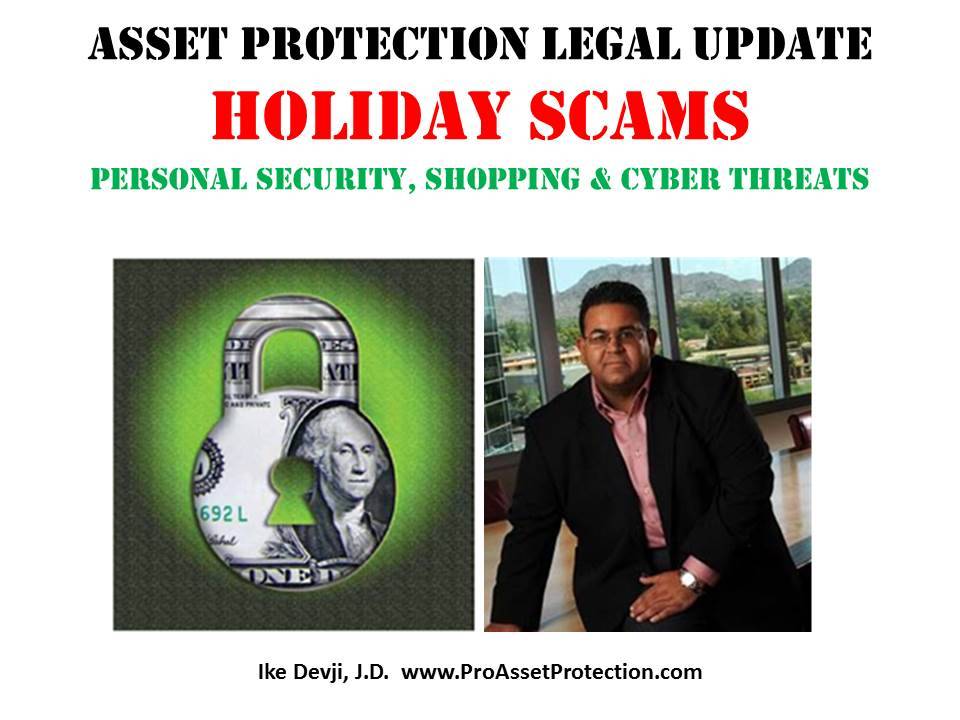 Whether you are a Black Friday, Cyber Monday or everything in-between shopper, the number of threats to your wealth and assets both in person and online at a high at this time of year. Here are some issues to look out for to protect yourself, your family and the joy of the Holidays.
Whether you are a Black Friday, Cyber Monday or everything in-between shopper, the number of threats to your wealth and assets both in person and online at a high at this time of year. Here are some issues to look out for to protect yourself, your family and the joy of the Holidays.
Yes, this is different from what you usually see from me, but Asset Protection is first and foremost about managing RISK, not just lawsuits. Below are two of my most recent columns for Physicians Practice that apply to everyone and center on financial scams and crimes of opportunity that are even more prevalent during the holidays.


